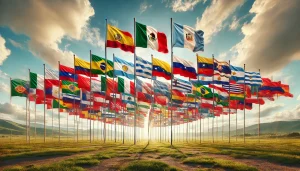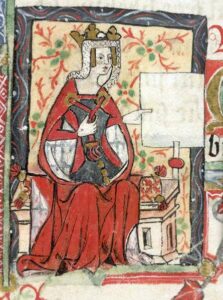Looking back hundreds and hundreds of years from now, we begin to look at how a country began its dominance by simply being courageous. Many rulers from different countries tried to sail and find new trading posts and ways of bringing in money but not many succeeded. Portugal on the other hand found ways of making money that would change not only their lives but many other countries that followed suit after them. How did they become successful and what did they discover before Columbus, you may ask?

The age of European exploration started with Prince Henry the Navigator, who sent an expedition to Africa to explore the coast of the continent in 1441, fifty years before Columbus set out his first voyage. Prince Henry was in high hopes in bringing riches back to Portugal. The purpose the Portuguese had in mind in its explorations over the next fifty years was: to expand European geographic knowledge, to find the source of prized African gold, and to locate a possible sea route to valuable Asian spices. Upon exploring, they came across different trading posts, and obtained their first amounts of gold dust from traders along the west coast of Africa. Portugal began to set up trading posts along the way, as well in Cape Blanco, Sierra Leone, and Elmina. These trading posts allowed them to trade Portuguese-made goods and items for African slaves; and they attempted to capture slaves on their own, but the attempt largely failed. During the 1480s, the Portuguese came into contact with the kingdom of the Kongo, situated south of the Congo river in what is today northern Angola. The Kongo became powerful through war and capturing and enslaving the people they defeated. The Portuguese believed that by having these slaves it would make it easier for them and it would ultimately make them more money. They made new territories that no one had ever seen or discovered before.
In 1444, a cargo of 235 enslaved Africans had been brought to Lagos in Portugal. Not long after this, the Portuguese soon began using these slaves on sugar plantations in Madeira, a small island off the west coast of Africa. The story of the Atlantic slave trade really has its beginnings here. Soon after this, they began to build the first slave fort, which was known as Elmina Castle, the headquarters of the Portuguese slave traders, which was located in present day Elmina, Ghana. Before they knew it, they began to dominate the slave trade for a short period, and they began not only making money with the slaves’ labor on the sugar plantation islands, but also by trading them for money as well. Eventually, the Portuguese sailed slaves across the Atlantic Ocean to numerous ports in the New World, where they sold these slaves for goods such as sugar, rum, and molasses. Slaves awaiting the “middle passage” were kept in pens, where they waited for months for a ship that would sail them to their new lives in the New World. The life of these slaves was tough.1
Portugal found out that West Africa had lots of gold, but also discovered the idea of slaves, something they had no intention of discovering or searching for upon the trip. The institution of slavery was already a reality in Africa even before the Portuguese sailed down the coast of Africa. But in the hands of the Portuguese, the conditions for these slaves became far worse when the Portuguese entered the slave business. Lisbon became a major European port for the slave trade; ships began to sail across the Atlantic Ocean to other ports that the Portuguese controlled, and began to carry more and more slaves on these ships. The Portuguese’s golden age was during the late 1400’s early 1500’s, thanks to their trade in slaves. The discovery of these slaves gave them a lot of power within a matter of years that helped them branch out from plantations and be able to trade and sell goods for enslaved Africans.2
Portugal discovered these slaves after many years and it made things easier for them with the growing of crops such as sugar and tobacco, along with the great amount of wealth that came from buying and selling slaves to other plantations. The courage that Prince Henry had for his country ultimately found them with great wealth and new sources for income as well. The journey allowed them to capture slaves and use them in the production of sugar and other plantations before Columbus sailed in 1492. The Portuguese were the first ones to discover the coast of Africa in efforts to becoming rich.3 The Portuguese dominated the early slave trade, but at its height relied solely on the new route and new forms of plantation by the exploration of the coast of Africa.4
- Salem Press Encyclopedia, January 2016, s.v. “Prince Henry the Navigator promotes Portuguese Exploration”, by Carl Rhohne and Marian T. Horvat. ↵
- Salem Press Encyclopedia, January 2016, s.v. ” Transatlantic slave trade begins”, by Thomas Tandy Lewis. ↵
- Salem Press Encyclopedia, January 2016, s.v. ” Transatlantic slave trade begins”, by Thomas Tandy Lewis. ↵
- Encyclopedia Virginia, January 2013, s.v. “Slaves and Middle Passage”, by Brendan Wolfe. ↵



29 comments
Coraine Blue
So, Portugal was the first to “rape” the continent of Africa. Christopher Columbus came second, and continued to “rape” the continent of Africa.
Demetrios Katsoudas
no, that would be the arabs
chozz
for a view of columbus’s particular effect on the african and new world people read the following:
https://noirg.org/articles/columbus-discovered-the-slave-trade/
it’s raw, but cannot i’m sure even approximate the actuality
peace
Lesley Martinez
This is the type of history that is often overlooked. The age of European exploration is intriguing. The Portuguese were exploring new land even before Christopher Columbus, which is not often heard of amongst the general public. It’s shocking to read that the Portuguese entered the kingdom of the Kongo, only to enslave Africans and make the conditions worse. Their economic dependence on this slave plantation is unfortunate, but important history to know about. Great article!
Makenzie Santana
I didn’t realize that the Portuguese were technically the ones who started the slave trade creating a value in the trade so big that they got the benefits of selling them and owning them. I would have liked to have know more about the struggles of the slaves themselves, I believe it is important to have the knowledge of the issues of this that are morally wrong.
Hali Garcia
This is an interesting article. The life of a slave was most definitely “tough.” It was cruel how they were treated and viewed as objects and property and not as human. The foundation of a country’s economy in this era depended greatly on slaves because they made it easier for a country to produce crops. It is just horrible that the slaves had to be treated so badly.
Matthew Swaykus
While this article has a lot to say about how the slave trade started and how it played out, I cannot help but feel like the author did not describe the impact of this historical stain on humanity. Slavery is awful, especially the one formed by the European nations, but the most details we had from this article was that it was “tough”. In all reality, that does nothing to describe the torment that is being taken from an ancestral home and stripped of your basic human rights. I can’t believe I am saying this, but I am disappointed that the author could not describe the pain and agony brought on by this exploitation. Despite the repulsive nature of such a report, you have to depict how these fellow these families of imprisoned souls were treated before Columbus’s discovery and how their treatment only worsened with time.
Nameless
Totally agree. The author actually starts by saying “we begin to look at how a country began its dominance by simply being courageous.” I don’t think I would call it courageous to chain and beat another living soul for the sake of money and riches. Might want to change that to “we begin to look at how a country began its dominance by being brutal, heartless and losing all sense of humanity.”
Noah Bolhuis
I’m glad that this article had cleared Columbus’ name and showed that slavery has been a world wide problem for centuries, or millenniums before him. Europe, especially Portugal in this case, took advantage of what they saw as an exploitable resource that could end up being more valuable than the African gold. It is sad to see, but that is the reality of history. It is also stated that there were slaves already in Africa, so the Europeans either learned and traded with these slave owners, or saw all of the people there as potential property.
Michael Hinojosa
I’m glad this article was able to clear up the fact that slavery had existed far before Columbus ever made it to America. All throughout my pre-college educational career my teachers would act like slavery didn’t happen until AFTER Columbus sailed the ocean blue in 1492, so it was interesting to read about all of what happened before that since the actual origins of slavery isn’t something many schools are willing to teach to their students despite the fact it was a major historical event that spanned over a large period of time.
Ariana Melendez
I liked how the article described the very beginnings of slavery and makes clear that it already existed prior to European exploration. Nonetheless, Europeans had a lot to do with the expansion of slavery. It is interesting to find out how the slave trade with Europe began. It makes me sad however that the African peoples were enslaved by their own and how something that was initially just a tribal routine became something of great profit where millions of people died and suffered in the process.
Samuel Ruiz
It was interesting to read about a different situation regarding African slaves. Before, I had only really heard of African slaves in the United States. Although new discoveries are nice, it is very sad that Portugal discovered the idea of slavery without searching for it. Like modern times, it is also sad that many things have been done in order to obtain wealth and riches.